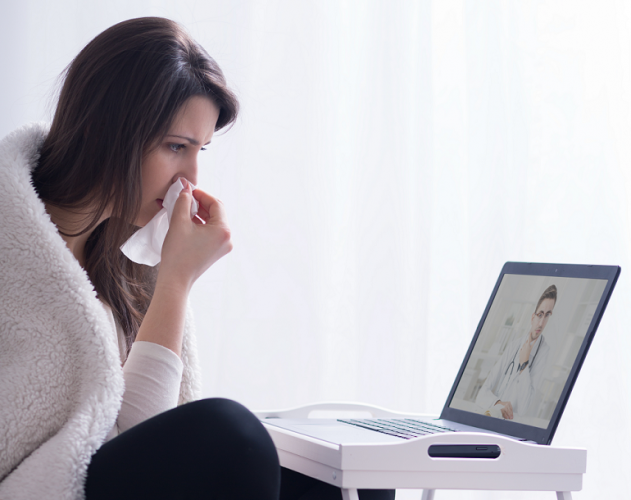Dr Omar Khorshid - Health misinformation, COVID vaccines
Transcript: AMA President, Dr Omar Khorshid, ABC News, ABC News at Noon with Ros Childs, Wednesday, 13 January 2021
Subject: Health misinformation, COVID vaccines

ROS CHILDS: Comments from Federal Government MP Craig Kelly which contradict official public health messages on coronavirus have been labelled as dangerous by doctors. Most recently he’s claimed that mandatory mask wearing is tantamount to child abuse and that the topical skin ointment Betadine could significantly reduce COVID-19 hospitalisations.
Here's Dr Omar Khorshid, who’s President of the Australian Medical Association. Hi Omar. Welcome. Your reaction to Craig's comments?
OMAR KHORSHID: It's really disappointing to see people who should know better getting out there and putting out just crackpot ideas on health issues. And most significantly, during a global pandemic, when what we really need is consistent messaging and all Australians understanding that we’re all in it together. We've all got to abide by the restrictions that have been put in place. We've got to have confidence in the treatment of COVID-19, in the vaccination program, and these kind of comments are really unhelpful.
ROS CHILDS: How much damage do you think that they could do?
OMAR KHORSHID: Well, I think that due to attention like this, people are starting to understand that in fact, maybe it's actually these guys who are running out on a limb. And I hope that not too many Australians are taking it to heart. But at the end of the day, these guys do have a lot of followers, whether it be on Facebook or Instagram or whatever it is. And there will be people who are susceptible to these kind of messages. The challenge I think for us is to make sure that the community knows where to get good health information and knows how to recognise crackpot ideas and separate them from good health advice from reputable sources.
ROS CHILDS: So, do you think there has been enough condemnation by politicians and the medical community to counterbalance the misinformation?
OMAR KHORSHID: I think that the medical community has been pretty consistent in its messaging, and I think that the Government has also said you should be looking to official sources, to Government websites, and to your own doctor for advice – not looking on the Internet. Now, there is more Government can do, and we'd certainly like to see them spending more money on the HealthDirect website for instance. Not just about this pandemic, but for health advice, generally. And also to roll out an advertising program to inform all Australians about the best places to find their health advice.
ROS CHILDS: But we have, Omar, been pretty good at taking on board health advice so far in the face of this pandemic, haven’t we? Evident by the low numbers of cases we've seen on the whole. So, do you think that Craig Kelly's messages will be believed by enough people to harm our future response to outbreaks?
OMAR KHORSHID: We're at a critical time now with a vaccination program just about to start. And I guess everyone is really sensitive to these messages, because for a vaccination program to work, we need everybody to be vaccinated, so we get those numbers up, we get the whole population immunised and therefore, immune to the virus. Any significant numbers of people who feel nervous, or just lose confidence, they may not believe the messages that they hear, but they may lose confidence in what is being said by the Government, and that is a real risk to all society, and most particularly, it's a risk to the vulnerable people in society, for whom vaccination may not be the solution. So that's children, for instance, who won't be able to access the vaccine early on. It's people living with immune deficiency syndromes and people on chemotherapy who may not get an adequate protective response from a vaccination. They rely on the rest of us doing the right thing, and that's why these comments are so dangerous.
ROS CHILDS: There have been questions over the efficacy of the AstraZeneca vaccine that's to be rolled out shortly, and those questions have been raised by the medical community. Do you have confidence in it?
OMAR KHORSHID: The data is still early for all of the vaccinations that have started. There’s one country in the world, that’s Switzerland, who’s approved the Pfizer vaccine properly. But the rest have actually approved the vaccines for emergency use because of the emergency situations that they're in. So, the data is still early.
Clearly, the early results from AstraZeneca were not as good as the two mRNA vaccines. But the AstraZeneca vaccine has the big advantage that it doesn't have to be stored at extremely cold temperatures and is therefore much more easily rolled out in a country as big and as hot as Australia. The vaccine, if it is 60 to 70 per cent effective, is still a pretty good vaccine. It's better than our flu vaccine and you don't need necessarily 100 per cent effectiveness for a vaccination program to do what it needs to do, and that is to protect the community.
I think Australians can have confidence in the regulator. They can have confidence in the people that make the decisions on our vaccines. They've done it before. We've got the best vaccination program in the world and I think we'll continue to do so through this COVID pandemic.
ROS CHILDS: Omar Khorshid, thank you.



